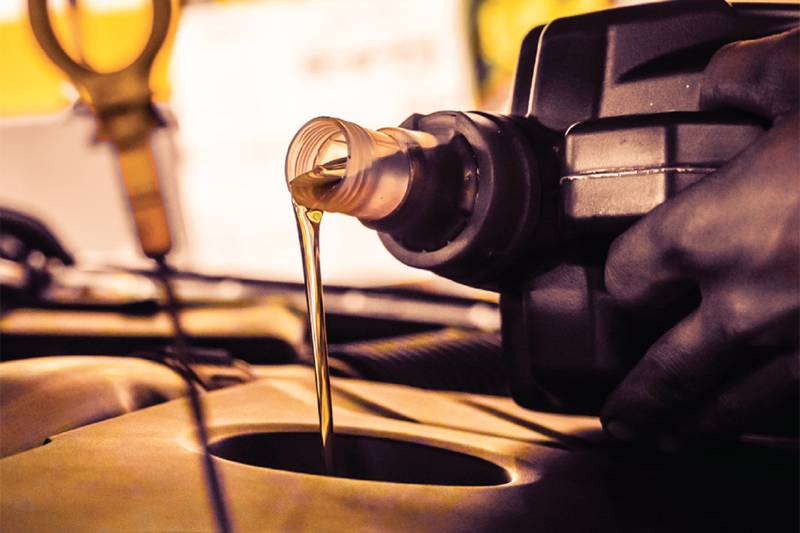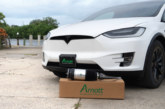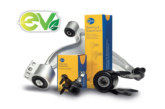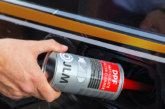
Chairman of the Verification of Lubricant Specifications (VLS), Mike Bewsey, a familiar name to readers this year, returns to offer another commentary – this time he focusses on deceptive marketing claims, some of which are being investigated.
VLS has recently opened four cases following complaints about misleading marketing claims on several passenger vehicle engine oils.
- Case 176 concerns a 0W-30 passenger car engine and its ability to meet its claim against an OEM specification. The complainant highlights the product’s ability to meet the NOACK (evaporation) limits required as a particular cause for concern
- Case 177 concerns a 5W-30 passenger car engine oil and its ability to meet claims against ACEA C2 and ACEA C3, alongside MB 229.51 and MB 229.52. The complainant alleges that the product fails to meet these specifications in key areas, including oxidation
- Case 178 concerns a 10W-40 passenger car engine oil and the compatibility between OEM specifications and SAE viscosity ratings, along with the product’s own performance claim against its technical specification
- Case 179 concerns a 5W-40 passenger car engine oil and its compatibility between OEM specifications claimed and also against one of the ACEA light-duty engine oil sequences
All cases are now under investigation by the VLS Technical Review Panel.
Mike said: “These new cases prove that misleading marketing claims are still a cause for concern for lubricant manufacturers, motor factors and mechanics alike.
“The world of engine oil has become increasingly sophisticated over the past few years. Smaller capacity engines are running at higher power outputs to maximise efficiency and deliver fuel economy alongside the use of exhaust after-treatment devices to reduce emissions. The need for compatibility with emission control devices and longer oil drain intervals, taken together with smaller sumps, have created the need for lower viscosity, synthetic or semi-synthetic oils to provide the essential lubrication required in these challenging conditions.”
Using the wrong oil risks accelerated wear to critical engine components, reduced effectiveness of emission control devices and customer complaints, according to VLS, and motor factors must be confident that the engine oils they are stocking are accurately labelled and fit for purpose.
Over the past five years, all of the cases investigated by VLS have concerned performance claims relative to market standards, such as conflicting or unevidenced OEM specifications or market standards, such as ACEA engine oil specifications. Products claiming that they meet certain specifications or are suitable for use in vehicles which might, at best, be unevidenced or, at worst, simply untrue.
Mike continued: “The VLS Marketing Claims Guidance is very clear about why clarity and consistency in lubricant blenders, manufacturers, and marketers’ use of these marketing claims is so important.
“End-users must be able to make informed decisions on the correct lubricants for a vehicle and be confident that a lubricant is suitable for use in their application.”
VLS considers there are three types of generic marketing claims, of which two are common:
1. Approved. This means that the product name has been registered with the approval authority and a ‘reblend’ approval was sought and obtained.
2. ‘Recommended for use’, ‘Suitable for use’ or ‘Meets the requirements of’ amongst other terms. These terms indicate that the marketer is making an informed, professional judgement based on supporting technical evidence regarding the suitability of a given lubricant to a stated application. These terms can include the following cases:
- an approval exists on the formulation being used, but the marketer has decided not to pursue a formal ‘reblend’ approval for their product name
- an approval is not technically possible; for example, claims which are self-certified and there is no body to grant approval, like ACEA sequences
- the specification is technically obsolete, or one or more tests are currently unavailable, but, on the basis of a technical judgement – similarity with previously tested materials – the product would fully meet all the requirements of the specification
- the lubricant marketer or technology provider has sufficient, robust and relevant supporting data for the recommended application. This should be on the basis of engine test data against the requirements of the OEM specifications and/or data from substantial field trials where appropriate.
3. Not suitable for use. In practice, this would normally be indicated simply by the omission to claim one of the above classifications for the product.
In all cases involving marketing claims, it is the responsibility of the product marketer to ensure that they have sufficient data from a technically competent individual or organisation to justify any such claims.
Mike concluded: “It is understandable that with margins under pressure, lubricant marketers are keen to service the maximum number of applications with the minimum number of products, but they must be able to prove their marketing claims.
“VLS plays a vital role in ensuring that lubricants are labelled accurately. This includes working with Trading Standards, if required, to ensure that robust action is taken, and incorrectly marketed products are brought into line.”







